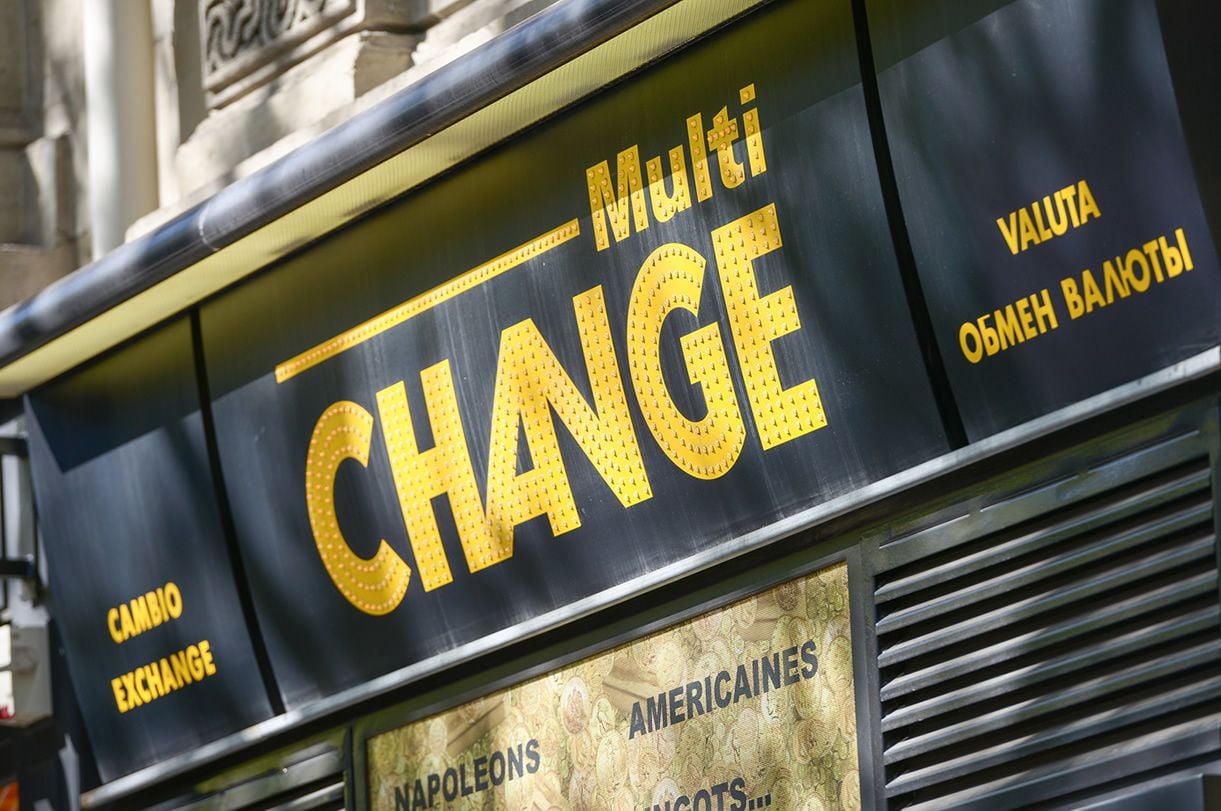Two Reasons Why the US Dollar Will fall, Despite Powell's Short-Term Boost

© Goodpics, Adobe Stock
The Dollar has strengthened since the new governor of the Federal Reserve Jerome Powell gave his inaugural address to Congress, however, not all analysts think it will last.
The US Dollar has risen following the inaugural speech of the new governor of the Federal Reserve (Fed) Jerome Powell, but gains are likely to be shortlived, according to analysis from Unicredit head of FX strategy research, Dr. Vasileios Gkionakis.
Gkionakis thinks that in the long-run the US Dollar will weaken as pressures from the country's widening budget and trade deficits weigh. Deficits often need outside financing to cover, but the US's increasingly risky borrower profile will act as a deterent to investors and the US Dollar will need to fall to entice them to commit.
The FX market interpreted US Fed Governor Powell's more upbeat comments about the US economy since December as representing an upgrade from previous assessments.
He suggested the risk of the economy overheating was now marginally greater than that it would fail to meet its 2.0% inflation target, which was interpreted as indicating the Fed could raise interest rates even more quickly than previously thought.
He also said that market volatility - ie further stock market sell-offs - would not prevent the Fed from following its interest rate rising schedule.
After the speech analyst's consensus appeared to be that there was now an almost 100% probability of the Fed raising interest rates by 0.25% in March and a higher chance of four rate rises overall in 2018, from a previous expectation of only three.
Since higher interest rates normally lead to a stronger currency the market bid up the Dollar on the news.
The generally held assumption is that higher interest rates, or the expectation thereof, tends to increase foreign capital inflows due to the draw of higher returns, thus increasing demand for the currency.
The Dollar rose versus a basket of counterparts, from Monday's close of 89.79 to a current level of 90.46. EUR/USD fell from 1.2273, just before Powell took the Podium, to a current market level of 1.2209.
The Dollar's strength will be short-lived, however, thinks Unicredit's Gkionakis, who sees outside investors being put off by the widening hole in the government's accounts caused by a combination of falling revenue from lower taxes and increased spending.
This and the news that the trade deficit has widened again has reopened the 'twin deficit argument' for seeing the Dollar weaken.
The 'twin deficit' argument says that if a country has both a budget and a trade (current account) deficit it is highly likely to weaken.
According to Gkionakis increasing fiscal spending when the economy is already at 'full capacity' which means when things are going well and unemployment is low, is not a good idea as it simply balloons the budget deficit.
This often has to be financed by borrowing from foreign investors. A profligate spending record is not an aid to getting a loan, as everyone knows, so the argument is that the US Dollar will have to fall to compensate foreign lenders for the increased risk.
Having a 'twin deficit' is even worse because that deficit also needs to be financed, again usually by borrowing from outside investors who likewise need a weaker Dollar to offset the increased risk.
Whilst the twin deficit model has its critics and there have been long periods when the Dollar has strengthened despite there being a twin deficit, there are also compelling arguments for the theory.
The argument that the Dollar will adjust lower to compensate lenders for the higher risk profile seems a little 'theoretical' and suffers from the fact that, in the short-term at least, increased borrowing from outside the US would actually temporarily increase raw US Dollar demand and see it strengthen, not weaken.
There are other reasons to expect more concrete changes in the supply and demand to weigh on the Dollar as a result of the twin deficits phenomenon, however.
One such reason is that by cutting taxes and running a budget defciit you increase poeple's disposable income and people, especially the richest quotient, will invariably use the extra cash to purchase goods, which in an economy like the US, are normally foreign imports. Thus by giving everyone a tax break, you may generate a rise in demand for imports and the currencies those imports are denominated in over the US Dollar which is more likely to weaken from being more heavily sold.
Get up to 5% more foreign exchange by using a specialist provider to get closer to the real market rate and avoid the gaping spreads charged by your bank when providing currency. Learn more here.




